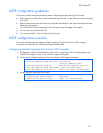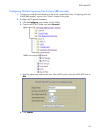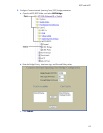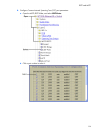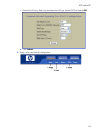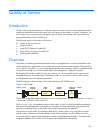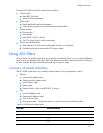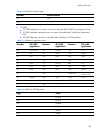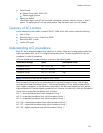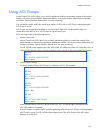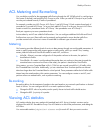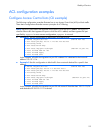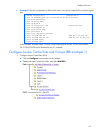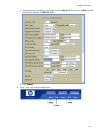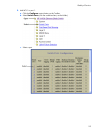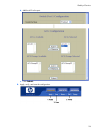
Quality of Service
89
• Packet Format
○ Ethernet format (eth2, SNAP, LLC)
○ Ethernet tagging format
• Egress port packets
Note that the egress port ACL will not match a broadcast, multicast, unknown unicast, or Layer 3
packet. The egress port ACL will not match packets if the destination port is a trunk member.
Summary of ACL actions
Actions determine how the traffic is treated. The HP 10GbE switch QoS actions include the following:
• Pass or Drop
• Re-mark a new DiffServ Code Point (DSCP)
• Re-mark the 802.1p field
• Set the COS queue
Understanding ACL precedence
Each ACL has a unique precedence level, based on its number. When an incoming packet matches the
highest precedence ACL, the ACL’s configured action takes place. The other assigned ACLs also are
considered, in order of precedence.
ACLs are divided into Precedence Groups, as shown in the following table.
Precedence Group ACLs Precedence Level
Precedence Group 1 ACL 1 – ACL 128 Low
Precedence Group 2 ACL 129 – ACL 256
Precedence Group 3 ACL 257 – ACL 384 High
NOTE: Precedence Groups are not related to ACL Groups.
Each Precedence Group has its own precedence level, such that Precedence Group 2 has a higher
precedence level than Precedence Group 1. Within each Precedence Group, higher-numbered ACLs
receive higher precedence, so that the lowest-numbered ACL has the lowest precedence level, and the
highest-numbered ACL has the highest precedence level. However, the other ACLs within the Precedence
Group have an unspecified precedence level, as follows:
ACL 1 = lowest precedence level within Precedence Group 1
ACL 2 = unspecified precedence level within Precedence Group 1
ACL 3 = unspecified precedence level within Precedence Group 1
...
ACL 126 = unspecified precedence level within Precedence Group 1
ACL 127 = unspecified precedence level within Precedence Group 1
ACL 128 = highest precedence level within Precedence Group 1



